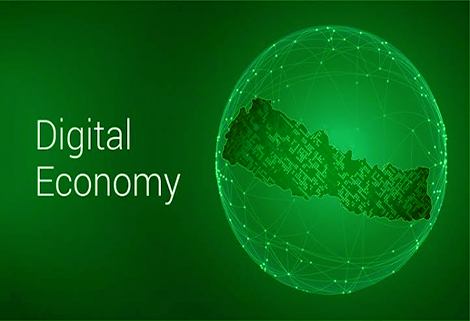Nigeria is doubling down on its digital economy push, with President Bola Tinubu reaffirming his administration’s commitment to tech-driven job creation and youth empowerment. Speaking in Abuja on Monday, Tinubu received a report from the National Institute for Policy and Strategic Studies (NIPSS) outlining a roadmap for accelerating the country’s digital transformation.
The report, “Digital Economy, Youth Empowerment and Sustainable Job Creation in Nigeria: Issues, Challenges, and Opportunities,” offers strategic recommendations to boost broadband infrastructure, enhance digital governance, and position Nigeria as a major tech hub in Africa.
Key Policy Shifts to Watch
The 96 participants of NIPSS Senior Executive Course 46 made a series of recommendations, including:
Fast-tracking the Digital Economy and e-Governance Bill 2024, which will go through public hearings in all 36 states and the FCT before passage in 2025.
Urging state governments to eliminate Right of Way (RoW) fees, which hinder the expansion of telecom infrastructure.
Issuing an Executive Order mandating all MDAs to migrate to OneGov.ng, a unified e-governance portal.
Securing long-term funding for the 3MTT (Three Million Technical Talent) program, a digital skills training initiative.
Accelerating Nigeria’s transition from IPv4 to IPv6 for enhanced internet efficiency and security.
Establishing Digital Health Innovation Hubs and developing a preventive maintenance app for Nigeria’s automotive industry.
President Bola Tinubu, in response, directed the Minister of Communications and Digital Economy to collaborate with NIPSS and fast-track the implementation of key recommendations.
“At the core of our administration is youth empowerment. We cannot relent on that, and we need everyone’s collaboration,” he stated.
Massive Broadband Expansion and Infrastructure Investment
The government is making significant moves to improve broadband access and digital infrastructure. The Minister of Communications and Digital Economy, Bosun Tijani, revealed that:
11 states have already waived RoW fees, with more expected to follow.
The federal government has approved a $2 billion investment in 90,000km of fibre optic cables, giving Nigeria the third-longest fibre network in Africa, behind South Africa and Egypt.
Nigeria is on track to become one of the first African nations to fully transition to IPv6, a crucial step for internet speed and security.
The Private Sector’s Role in Nigeria’s Tech Boom
The government isn’t working alone—private sector players are stepping in to boost Nigeria’s startup and fintech ecosystem.
The Coordinating Minister of the Economy and Minister of Finance, Wale Edun, highlighted that ICT contributed 16% to Nigeria’s GDP in 2024, making it a key driver of economic growth.
He also noted that Flutterwave is considering listing on the Nigerian Stock Exchange, a move that could strengthen Nigeria’s digital payments and fintech landscape.
Nigeria’s Digital Future: The Challenges and the Road Ahead
Despite the optimism, infrastructural gaps, regulatory bottlenecks, and digital skill shortages remain challenges. Prof. Ayo Omotayo, Director-General of NIPSS, emphasized that Nigeria must:
- Expand broadband access to reach underserved areas.
- Create startup-friendly policies to drive innovation.
- Improve digital literacy and access to funding for tech entrepreneurs.
With a clear government-backed roadmap, increased private sector investment, and a growing digital talent pool, Nigeria is setting itself up as a leading digital economy hub in Africa. If the policies and investments materialize as planned, the country could see millions of new tech jobs and a surge in digital startups, positioning itself for sustained growth in the global tech space.

































